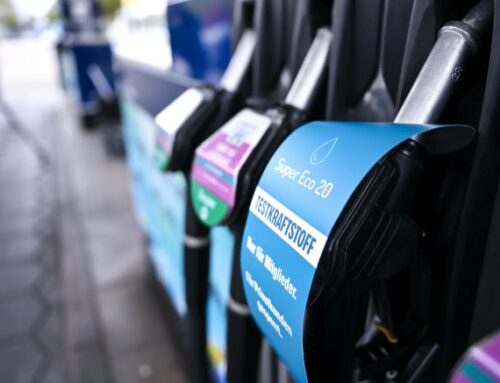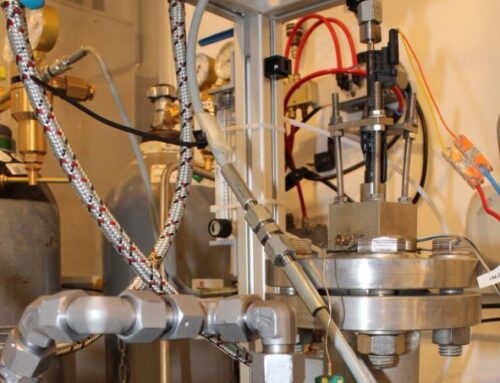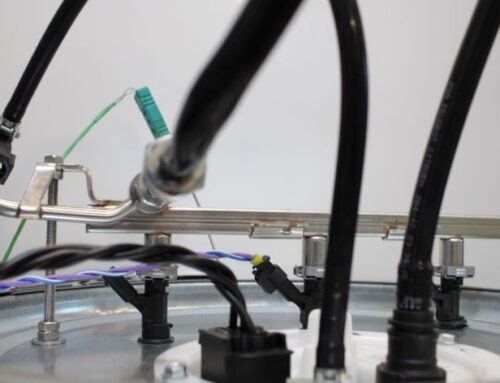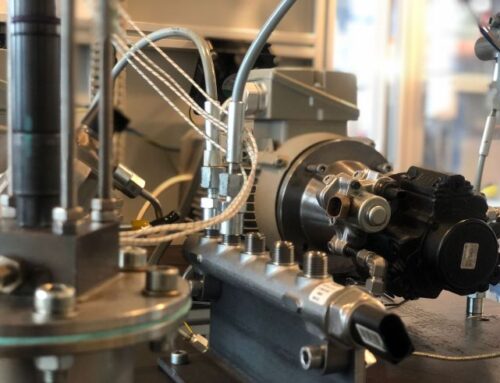12 July 2018 –
The development and assurance of fuel quality faces major challenges. Sooner or later, the fuels available on the market will be supplemented and blended with new types of fuel with lower CO2 emissions. In order to maintain fuel quality when blending fuels with very different chemical-physical properties (polar / non-polar), research is dealing with the framework conditions and identifying still open questions. The expert panel of the workshop “Polarity of Fuels”, to which the Fuels Joint Research Group (FJRG) and the Union for the Promotion of Oil and Protein Plants (UFOP) had invited the Fuels Joint Research Group (FJRG) and the Union for the Promotion of Oleaginous and Protein Plants (UFOP) in mid-June, therefore came to the conclusion that systematic research must be intensified with a view to the future in order to at best test the functionality of the different fuel mixtures during vehicle operation. The workshop served to take stock of the research projects funded by UFOP, the Agency for Renewable Resources (FNR), the Research Association for Internal Combustion Engines (FVV) and other project sponsors.
In order to meet the climate protection target for transport in 2030, various strategies are being pursued and promoted. One strategy option is the introduction of partially electric drives (hybrid vehicles) and fully electric drive systems. At the same time, work is being carried out on the development of CO2-neutral liquid fuels that must be miscible with mineral oil-based diesel or petrol. Challenges for fuel quality development and assurance can arise when mixing non-polar fuels (e.g. diesel) with polar fuels (e.g. biodiesel), for example through interaction effects of fuel mixtures and vehicle technology. In addition, the hybridisation of vehicles will prolong the service life of the fuel mixtures in the vehicle tank and cause ageing effects which could influence the fuel quality (in the tank). The increase in the proportion of non-polar biofuels, such as hydrogenated vegetable oil (HVO) and, with a long-term perspective, also electricity-based regenerative fuels (power-to-liquid), on the other hand, appears to be less likely to trigger interactions that interfere with vehicle operation. This is the subject of current research.
The expert discussion was preceded by a comprehensive report on completed and ongoing projects. Sebastian Feldhoff from the Oel-Waerme-Institut presented the interim results of a research project in progress together with TEC4FUELS and TAC Coburg. It deals with the ageing of fuels in the tanks of plug-in hybrid vehicles with dwell times of 6 months and more. On the fuel side, the study focuses in particular on aged fuels and fuel blends from petrol and ethanol/methanol or from diesel fuel and fatty acid methyl ester (FAME) as well as alternative diesel fuels such as hydrogenated vegetable oil (HVO) and oxymethylene ether (OME). The fuel blends are stored in long-term experiments at the OWI and show very different behaviour. First results of the current project with fuel blends indicate a large influence of mineral oil based fuels on the stability of mixtures produced from them. In order to determine the effects on the performance of these blends, experiments on interaction with technical components are planned after long-term storage and, if necessary, instructions for practical use are to be derived. This is because it must be ensured that possible interactions between alternative and/or aged fuels and fuel-carrying vehicle components do not lead to component failure and consequently to a failure of fuel-carrying components.
In the opinion of the participants, the results of the presented project projects are not only important for national and European fuel strategy development, but also for fuel strategy development in all parts of the world.




